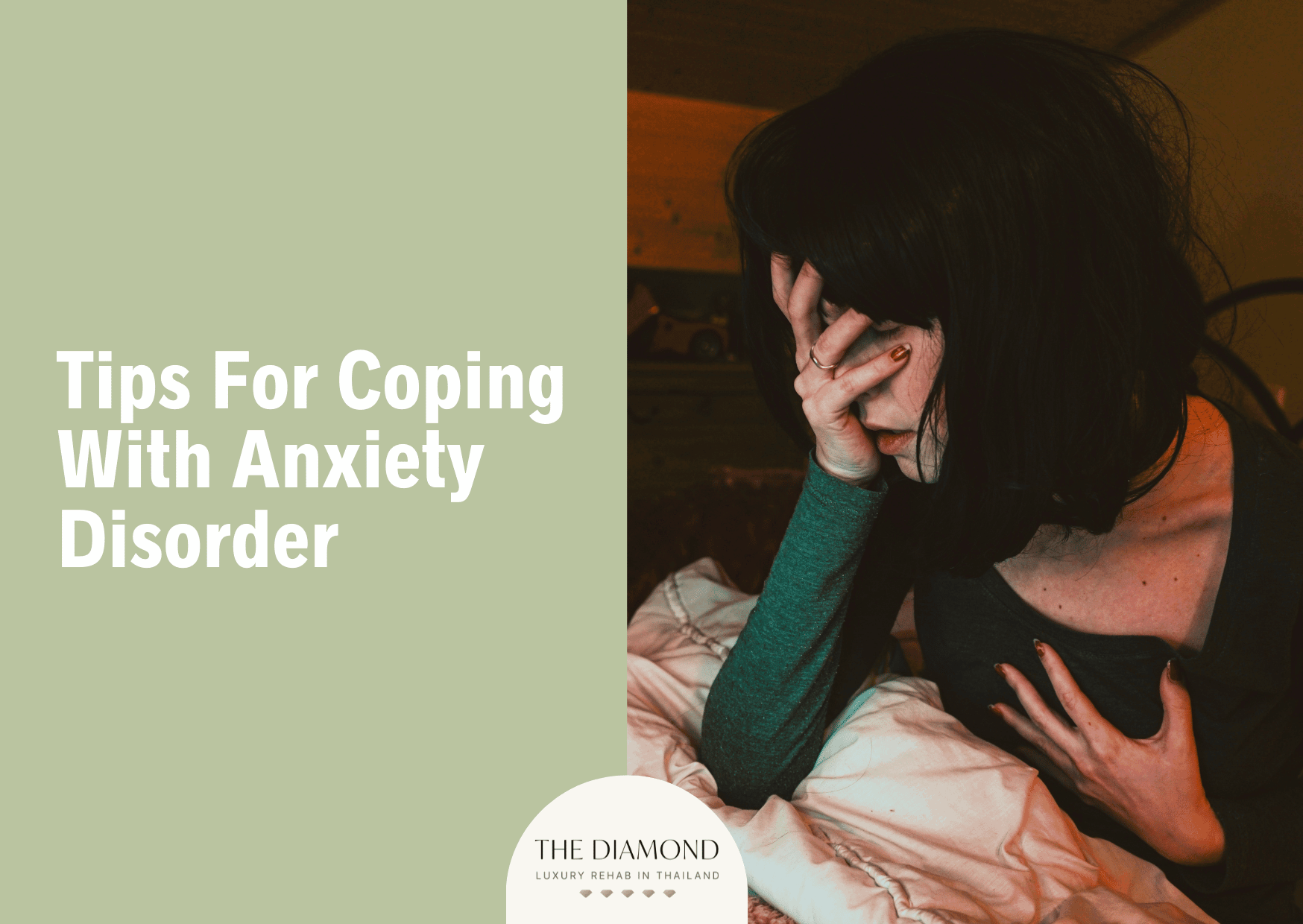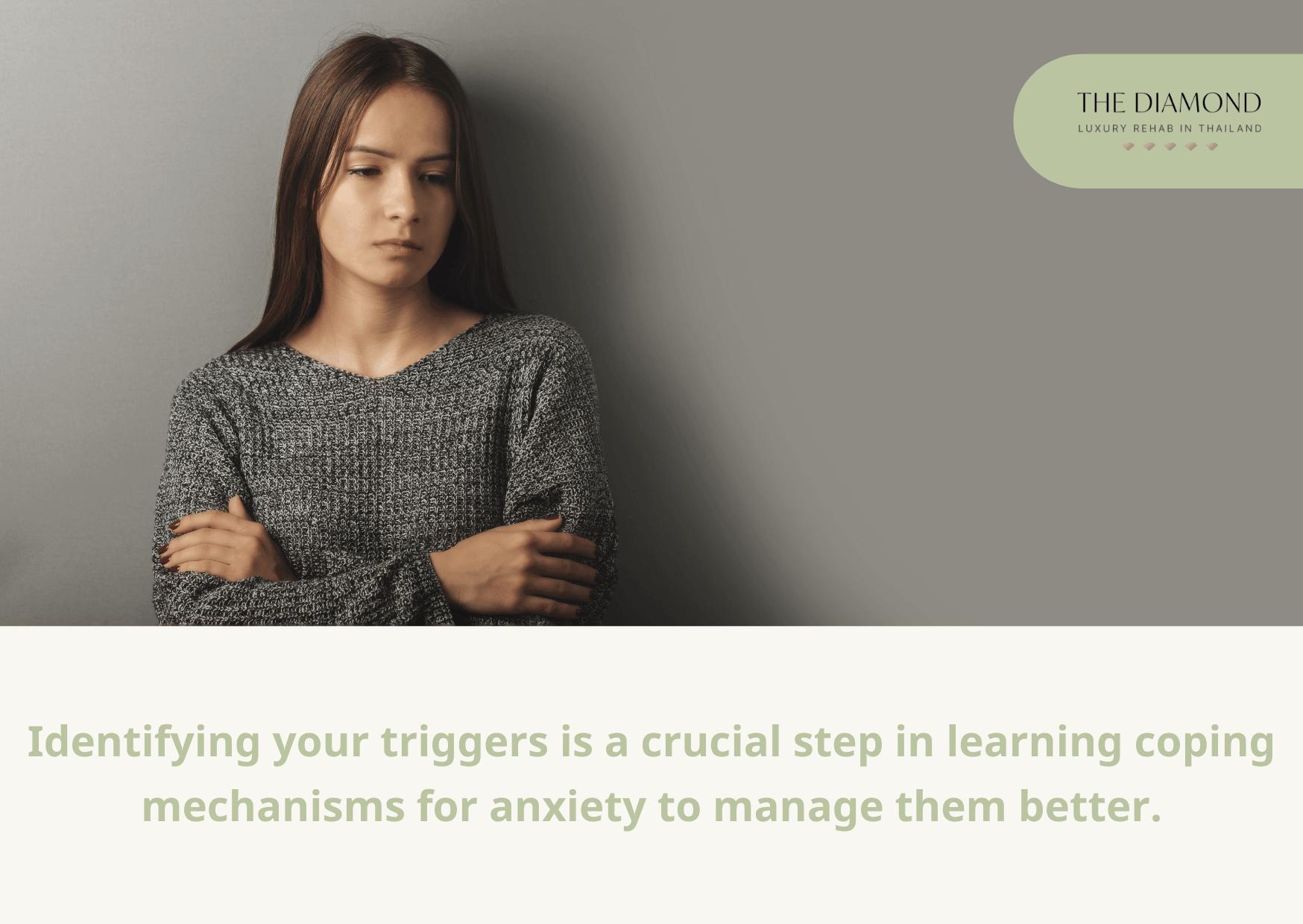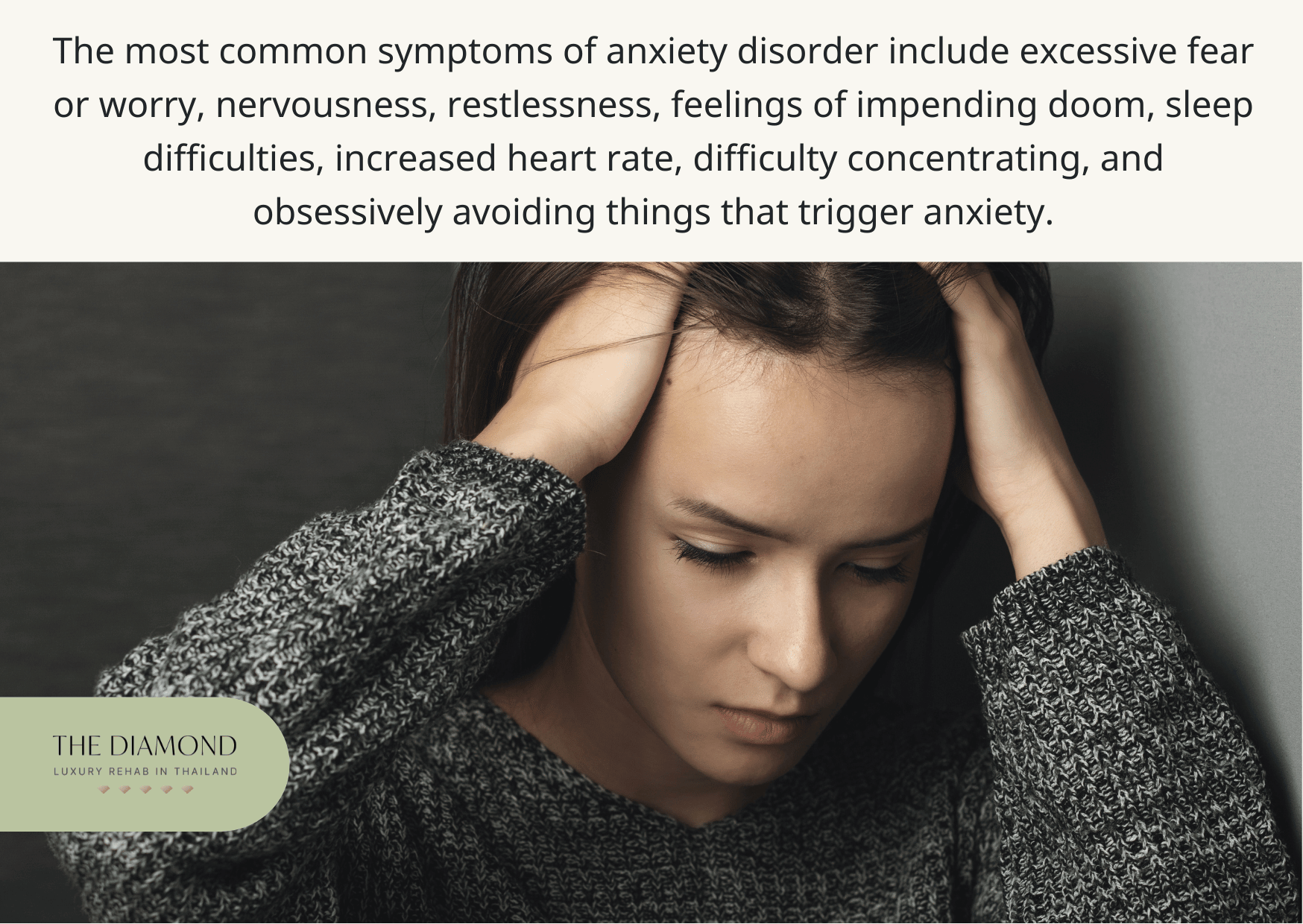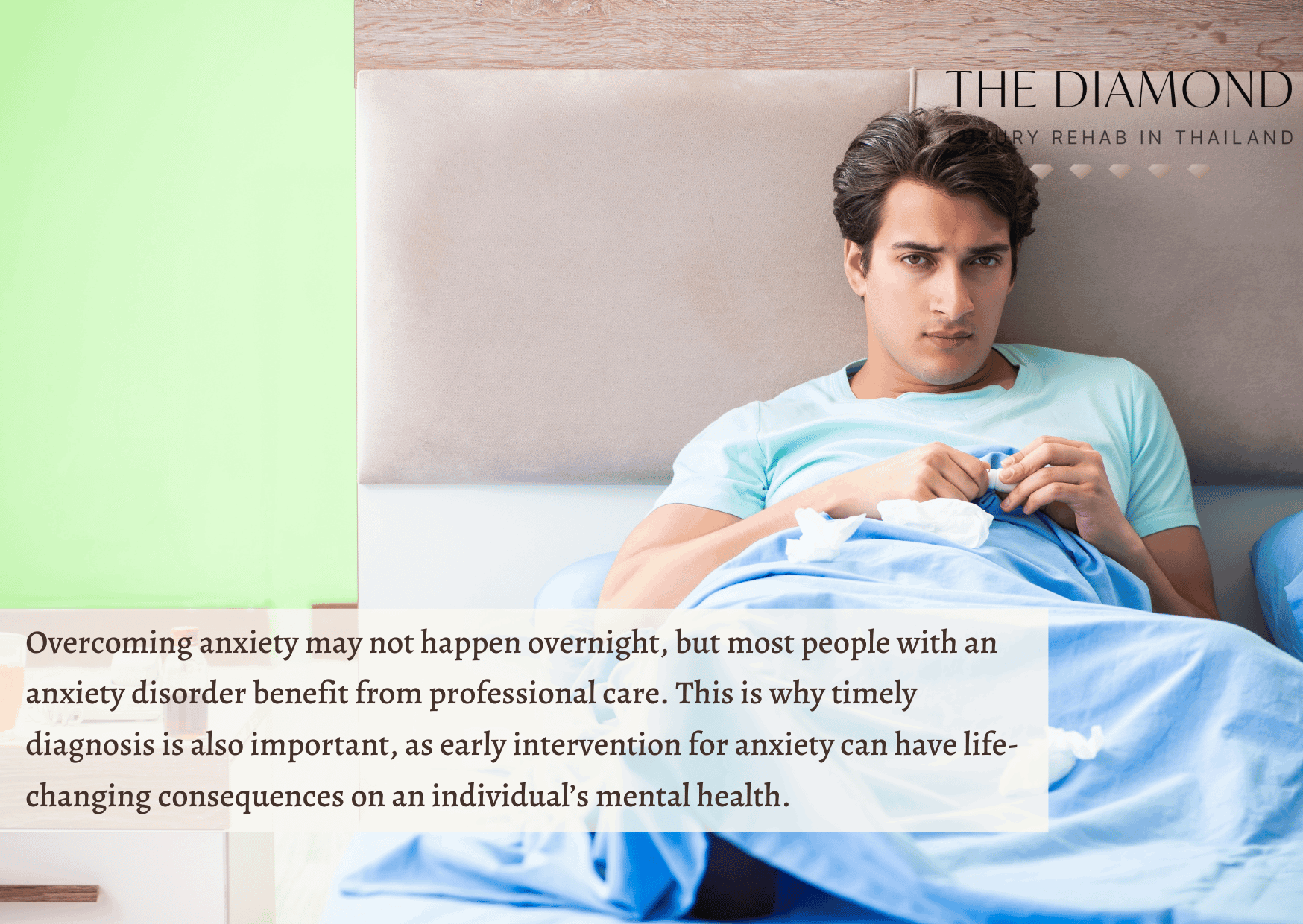11 Tips for coping with an anxiety disorder
Table of content
- 1. Keep physically active
- 2. Avoid alcohol and recreational drugs
- 3. Quit smoking, and cut back or quit drinking caffeinated beverages
- 4. Use stress management and relaxation techniques
- 5. Make sleep a priority
- 6. Eat healthy foods
- 7. Learn about your disorder
- 8. Stick to your treatment plan
- 9. Identify triggers
- 10. Keep a journal
- 11. Socialize
- What is Anxiety disorder?

Millions of people around the world live with some form of anxiety. While you may have heard that some degree of anxiety is not always a bad thing, feelings of anxiety also have their downsides, especially when they have developed into a full-blown anxiety disorder.
Anxiety that ends up interfering with a person’s life and daily functioning warrants professional help. However, this does not mean that treatment is the only thing that can stop anxiety from taking over your life.
There are a few strategies you can use to tamp down feelings of anxiety to a more manageable level. Read on to learn more about the tips for coping with an anxiety disorder.
1. Keep physically active
Increased physical activity is such a powerful tool against anxiety that research shows even a single bout of exercise can help ease feelings of anxiety. Exercise does not only divert your attention from the things that make you anxious, but it also helps activate the amygdala, which is the part of the brain responsible for the regulation of fear.
2. Avoid alcohol and recreational drugs
In search of ways how to cope with anxiety, some people may engage in the use of substances such as alcohol and illicit drugs to ease anxiety. However, substance use only provides short-term relief and the anxious feelings come back worse once the effects of the substances wear off. Anxiety disorder is also a mental health condition that is frequently comorbid with substance use disorder.
3. Quit smoking, and cut back or quit drinking caffeinated beverages
Eliminating nicotine and reducing caffeine levels in your system is one of the many ways how to handle anxiety. Just like alcohol and drugs, the temporary sense of relaxation and energy boost that nicotine and caffeine provide come at the cost of worse feelings of anxiousness once the effects wear off.
4. Use stress management and relaxation techniques
Anxiety disorder activates the fight or flight response of the body, keeping it on high alert at all times, even with no real perceived threat or danger. Stress management techniques such as meditation, deep breathing exercises, or mental imagery relaxation can help recalibrate an individual’s alarm system and allow them to function effectively in life.
5. Make sleep a priority
One of the best coping skills for anxiety is getting a good night’s sleep where one feels rested and energized, as this helps combat negative feelings. Anxiety is often associated with sleeping problems. Excessive worry and fear can make it harder for people with anxiety disorders to fall asleep or stay asleep. In the same way, lack of sleep also affects mood and worsens anxiety.
6. Eat healthy foods
A healthy diet that is rich in fruits, vegetables, and whole grains can make a difference in dealing with anxiety. Eating healthy helps reduce symptoms of anxiety and boosts brain function. Make sure to steer clear of foods with lots of simple carbohydrates, such as processed foods.
7. Learn about your disorder
Learning about your disorder means being well-informed about the causes, symptoms, and treatment for your illness. This is one of the things that can help with anxiety, as understanding the condition better helps an afflicted person make informed decisions about the type of treatment plan that fits their personal goals.
8. Stick to your treatment plan
Sticking to your treatment plan refers to your adherence to methods and therapy suggested by your doctor or mental health professional. As a patient, doing your part to increase the effectiveness of the treatment plan is one of the ways how to help with anxiety and relieve the symptoms.
9. Identify triggers
In mental health terms, triggers are things that affect an individual’s emotional state by sparking intense negative emotions. Identifying triggers for one’s anxiety means discovering any anxiety triggers, whether they may be people, objects, memories, sight, or even scents that elicit an adverse emotional reaction. Identifying your triggers is a crucial step in learning coping mechanisms for anxiety to manage them better.
10. Keep a journal
One of the many ways how to deal with anxiety is by keeping a journal. Journaling for mental health means keeping a record of your thoughts, emotions, feelings, and insights about your daily life experiences. This helps identify day-to-day symptoms as well as identify negative thoughts and behavioral patterns, so you can learn ways to better control them.
11. Socialize
Socialization is the act of mixing socially with other people and is also an effective way of coping with anxiety. Socializing triggers the production of a hormone that reduces anxiety levels and promotes relaxation and trust among loved ones. Social connections also provide emotional support, which is crucial in reducing the damaging effects of stress and helps foster a sense of meaning in life.

What is Anxiety disorder?
Anxiety disorder is a mental health condition that involves persistent and excessive fear or worry that ends up interfering with one’s daily functioning. The major effects of anxiety disorder on a person’s overall health include difficulty concentrating, panic attacks, breathing problems, upset stomach, depression, irritability, extreme fatigue, as well as muscle aches, and other pains.
Needless to say, the serious consequences of suffering from an anxiety disorder interfere with a person’s quality of life, leading them to search for answers on what to do for anxiety. Fortunately, there are many ways how to prevent having an anxiety disorder and get symptoms under control, such as the use of medications, psychotherapy, and the previously mentioned lifestyle changes and coping strategies.
What are the causes of anxiety disorder?
Anxiety disorder may be caused by a complex mix of factors, including genetics, brain chemistry, traumatic life events, substance withdrawal or misuse, and certain medical conditions.
Anxiety disorders can run in families, and individuals with blood relatives who have an anxiety disorder are more likely to develop the condition as well. Evidence also exists that the condition results from increased activity in the brain’s fear network and alterations in brain chemicals such as serotonin, dopamine, and norepinephrine.
Additionally, traumatic life events, such as childhood abuse and neglect, experiencing or witnessing violence, family issues, or the death of a loved one may contribute to anxiety disorder. Withdrawal or misuse of substances such as alcohol and drugs also often goes hand in hand with anxiety disorder.
Lastly, anxiety may be the first indicator of an underlying health issue. Medical conditions that are linked to anxiety include heart disease, diabetes, thyroid problems, and respiratory disorders, among others. These medical concerns may cause symptoms similar to anxiety disorders or worsen anxiety symptoms.

What are the symptoms of anxiety disorder?
The most common symptoms of anxiety disorder include excessive fear or worry, nervousness, restlessness, feelings of impending doom, sleep difficulties, increased heart rate, difficulty concentrating, and obsessively avoiding things that trigger anxiety.
Symptoms may vary from person to person and depend largely on the type of anxiety disorder a person has. Some tips for anxiety, particularly for reducing the impact of its symptoms, include getting prompt treatment, avoiding alcohol or drug use, and making significant lifestyle changes.
Where to seek help when you have an anxiety disorder?
An individual who suffers from anxiety disorder symptoms may seek help from a mental health specialist. A mental health specialist is a professional who can diagnose and can determine what helps with anxiety, which may include medications and counseling.

How long does it take to recover from an anxiety disorder?
The amount of time it takes to recover from an anxiety disorder can be anywhere between a few months and a few years from the time of diagnosis. However, the duration and success of treatment significantly vary from person to person and can be affected by many factors, including the type of anxiety disorder one has, the severity of symptoms, having multiple anxiety disorders, how quickly one received diagnosis and treatment, other medical issues, and individual circumstances.
Overcoming anxiety may not happen overnight, but most people with an anxiety disorder benefit from professional care. This is why timely diagnosis is also important, as early intervention for anxiety can have life-changing consequences on an individual’s mental health.
What is the best treatment for Anxiety disorder?
The best treatment for anxiety disorder is a combination of psychotherapy and medications. These two main treatments are what helps anxiety for most people who have the condition. Psychotherapy or talk therapy involves working with a trained mental health specialist to reduce one’s anxiety symptoms.
The most effective type of psychotherapy for those with an anxiety disorder is cognitive-behavioral therapy (CBT). CBT focuses on teaching an afflicted person how to identify and turn their negative thought patterns into positive ones. On the other hand, several types of medications are also used to treat anxiety disorder, including antidepressants, benzodiazepines, beta-blockers, anticonvulsants, and the antianxiety drug called buspirone.
